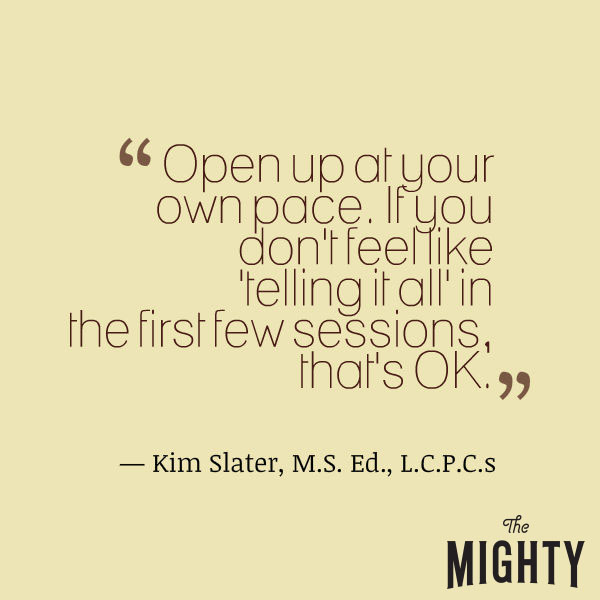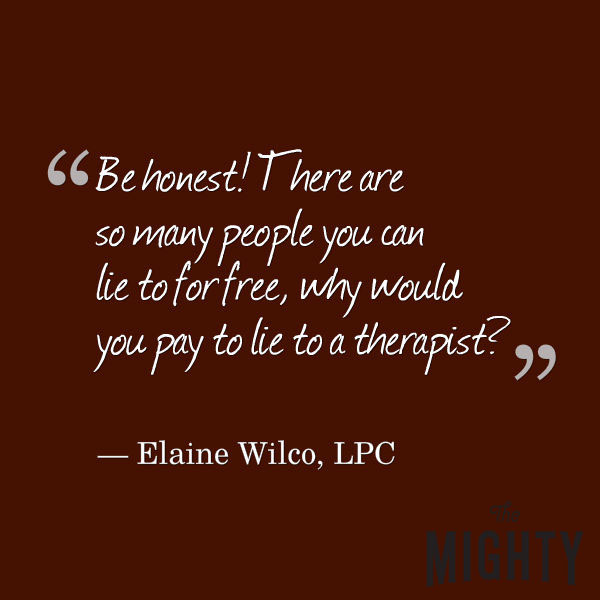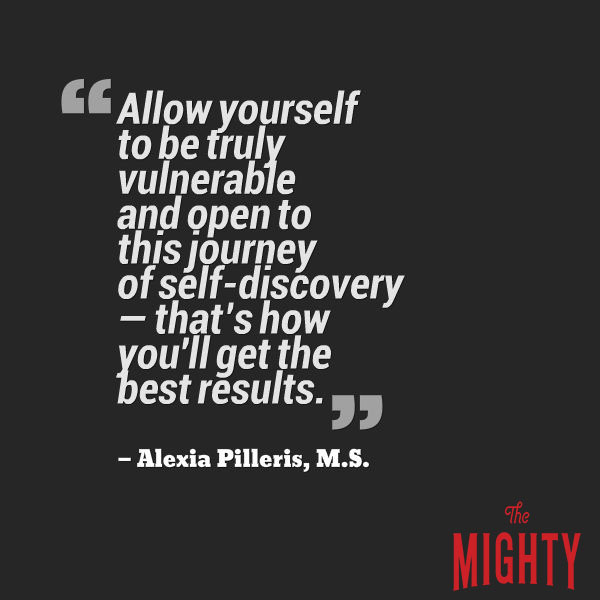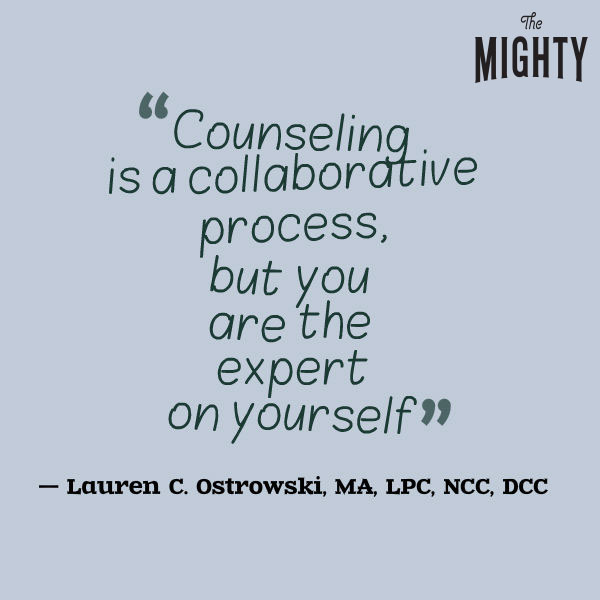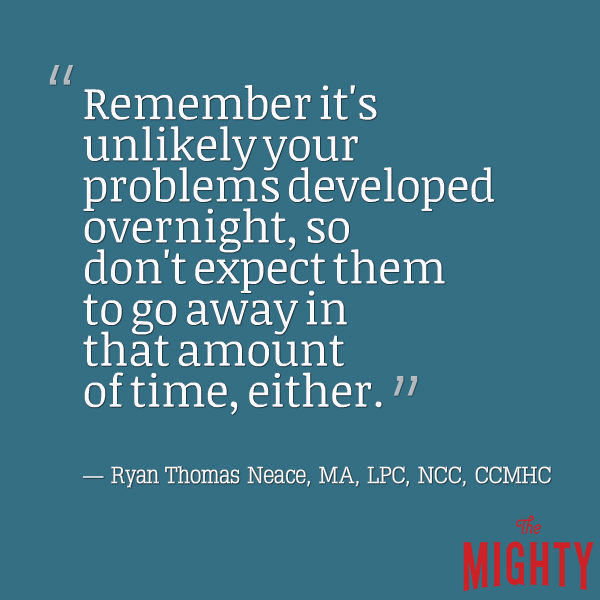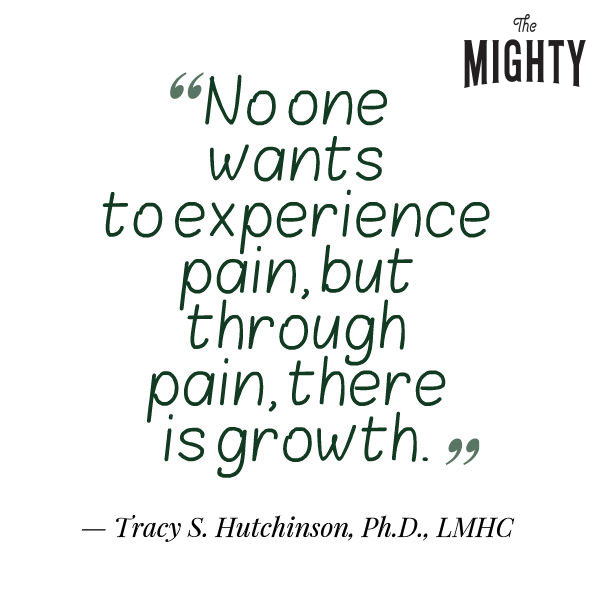If going to counseling is something you’re thinking about or a pursuit you’ve just begun, it can be a daunting process if you don’t know what to expect. So we teamed up with the experts — members of the American Counseling Association — to get you the inside scoop on what to expect from counseling, and some advice for people who’ve just begun.
Be proud of yourself for taking that first step. Now here’s some advice for making the most of it:
1. “Open up at your own pace. If you don’t feel like ‘telling it all’ in the first few sessions, that’s OK. Your counselor really wants to get to know you, not just the issue that brought you to counseling.” — Kim Slater, M.S. Ed., L.C.P.C.s
2. “It’s completely normal to feel somewhat on edge about what you’re doing, especially when you’re not quite sure what to expect. To ease this feeling of uncertainty, prior to meeting with your counselor, write down all of the questions you have about the counseling process, the specific counselor you are meeting with and about payment, outside session communications, cancellation policies, etc. And if at any time you get the sense you’re not clicking with your counselor, that’s OK! Trust the counseling process and don’t give up.” — Tara Finau, LPC
3. “Manage expectations. What do you, as a client, seek to achieve? Communicate that to the counselor and then discuss how that goal might be achieved long-term.” — John P. Duggan, M.A., NCC, LPC, LCPC
4. “Be honest! There are so many people you can lie to for free, why would you pay to lie to a therapist? If you feel that your therapist is judging you, or is uncomfortable with the topic, you need to find another therapist.” — Elaine Wilco, LPC
5. “Begin to develop a rapport with your counselor. Start by getting to know them and asking questions. A good relationship with your counselor will help maximize your experience and overall success.“ — Danielle A. Irving, M.A.
6. “As you begin counseling, prepare for the possibility of feeling some emotional discomfort as you learn to approach problems in ways that might be unfamiliar for you. Just as you might experience physical discomfort when beginning a new exercise program, you might feel a little uneasy as you begin working through sensitive issues using new mental techniques and strategies. Don’t be afraid to speak up if you have thoughts, ideas, suggestions or concerns!” — Erin T. Shifflett, MLA, M.Ed.
7. “Therapy is a journey of self-discovery and self-understanding. Allow yourself to be in ‘the here and now,’ and be open to really experiencing and exploring your thoughts and feelings. Be clear and honest in the counseling session. Allow yourself to be truly vulnerable and open to this journey of self-discovery — that’s how you’ll get the best results.” — Alexia Pilleris, M.S.
8. “Remember, you are in a safe and comforting environment. This is your time and your time only so make the most of it. Your counselor is on your side.” — Tanairy Fernandez, MS.Ed, LMHC, NCC
9. “Try your best to be honest about present and past events and thoughts. At times, clients approach initial sessions gingerly. They often minimize quantity, frequency or extent of feelings, behaviors or events. Being open and honest creates a healthy environment and helps establish trust.” — Dr. John D. Massella; LPC, NCC, CCS, CCDP
10. “Counseling is a collaborative process, but you are the expert on yourself. If you would like something to be different about your sessions (for example, different amount of focus on one issue compared to another), please ask.” — Lauren C. Ostrowski, MA, LPC, NCC, DCC
11. “Counseling is most helpful when we can share as openly, honestly and directly as much of our thoughts, feelings and behaviors as possible. Only then can we identify areas of challenge and success.” — Melissa Luke, Associate Professor, Coordinator of School Counseling, Syracuse University.
12. “Counseling is a process. I don’t have a magic wand or a magic pill, but I will walk with you on the journey of discovering who you are and where you want life to go. You have already taken the first step. Above all, please remember you are human and that is enough. You are enough.” — Lisa Taylor-Austin, NCC, LPC, LMHC, CFMHE, LLC
13. “Remember it’s unlikely your problems developed overnight, so don’t expect them to go away in that amount of time, either. Be realistic about the timeframe it takes to root out the causes of psychological distress. Give counseling at least 90 days (once-a-week appointments). By then you should know if what you’re doing is helping.” — Ryan Thomas Neace, MA, LPC, NCC, CCMHC
14. “Your counselor may assign ‘homework’ for you to do between sessions. Homework could include things like journaling, mood tracking, breathing exercises or other tasks. While this might be new for you, it can be a really important part of your treatment. But if you don’t do your homework or if you have trouble with it, be up front with your counselor. He or she can make adjustments.” — Gina Della Penna
15. “It’s important to understand you will get more results from counseling if you actively participate in the process. Remember, counseling is your journey to hope, healing and feeling better about yourself and life. Enjoy your journey!” — Dr. LaWanda N. Evans, Licensed Professional Counselor
16. “This is unlike any other relationship you probably have. In friendships it’s socially appropriate to give and take — you talk, then I talk, you share, then I share, and so on. Counseling is different because the focus will be on you. Sometimes you may struggle with what to talk about. This is OK. No one wants to experience pain, but through pain, there is growth. If you are truly doing the work, expect to leave some sessions feeling drained, overwhelmed and emotionally exhausted. This means you are on your way to healing. It’s something to be celebrated.” — Tracy S. Hutchinson, Ph.D., LMHC
*Some answers have been edited and shortened for clarity and brevity.


